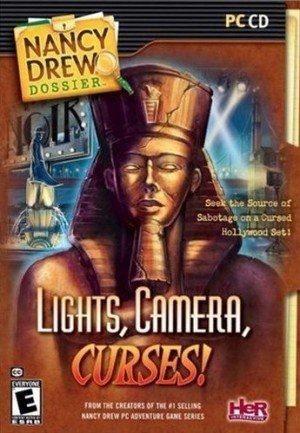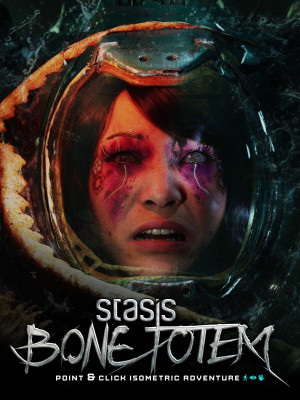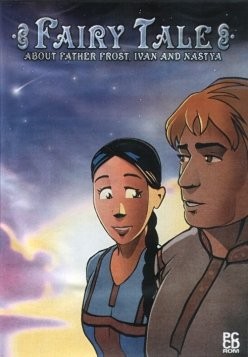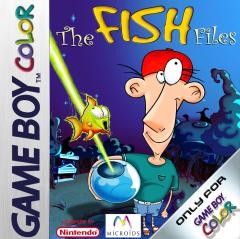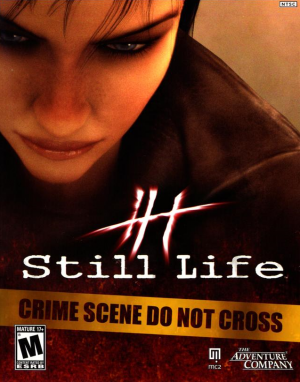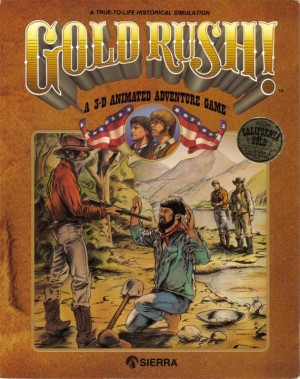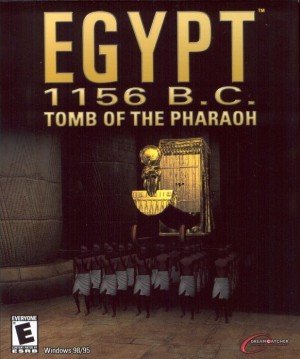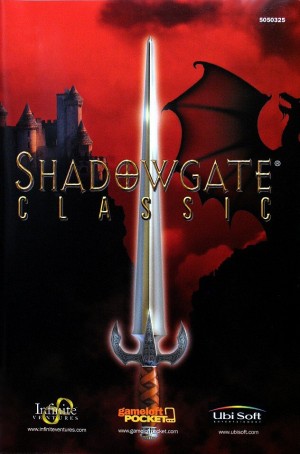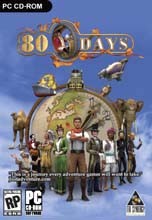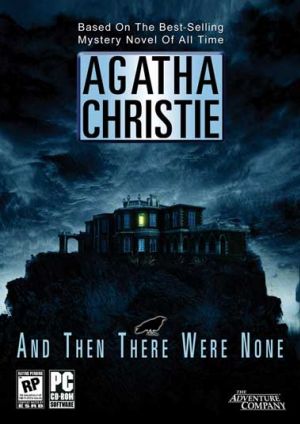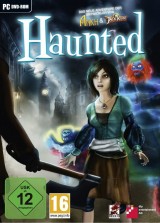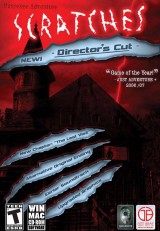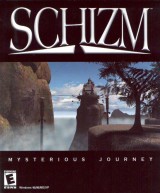Review for Nancy Drew Dossier: Lights, Camera, Curses!
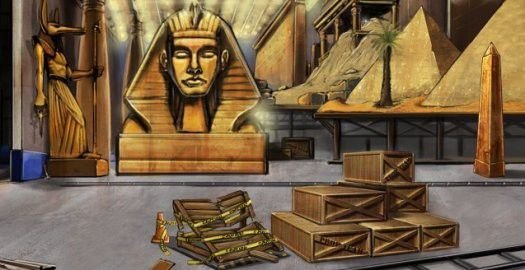
Her Interactive has created an incredibly reliable formula for Nancy Drew adventures over the years – a framework that has become as predictable as it is successful, firmly established in the longrunning mystery series now numbering almost twenty and still counting.
Nancy Drew Dossier: Lights, Camera, Curses! is not one of those games.
With the spin-off Dossier soon-to-be-series-of-its-own, the plucky teen detective takes the franchise in a decidedly casual direction. Fortunately, the developers showed the courtesy of using a distinctive title, as what a difference a single word makes. The new franchise is a much different experience than the full-fledged adventure titles that have come before it, with a clear focus on “lite” gameplay, albeit with enough similarities to likely appeal to Nancy’s existing fanbase. Oh, and a fair bit of fun in its own right.
The changes from the main series in Lights, Camera, Curses! are evident right from first glance. Gone is the realistic style of its adventure game predecessors, replaced by hand-painted artwork more closely resembling a graphic novel. This is supplemented by comic-like cinematics to complete the effect. The only exception is the character models during dialogues. These semi-animated talking heads, while nicely designed, look like they’d belong perfectly in a Nancy Drew adventure, though here it means they clash stylistically. They’re not at all unpleasant to look at, simply a strange departure from the game’s overall aesthetic.
While most casual titles go the “seek and find” route as the basis for gameplay, LCC forsakes the hidden object foundation in favour of something a little more organic to the storyline. In fact, this game is by far the closest to a traditional adventure I’ve yet encountered among casual titles. But it’s quite unique and definitions aside, make no mistake: it is indeed incredibly streamlined for casual markets, so anyone looking for a substantial mystery won’t find it here.
What you will find is a lightweight case that sends Nancy to a Hollywood movie lot where the remake of a classic called "Pharaoh" is currently being filmed. Production has been beset by a series of unexplained “accidents” and it’s up to the teen sleuth to investigate. The more she digs, however, the deeper the mystery, as it seems the original movie was plagued by unsolved tragedies of its own. Naturally, there are a handful of suspects in the current affair, including the ditzy starlet, the snake-loving director, the harried producer, and the desperate studio mogul whose back is against the financial wall. It’s a typically cheesy tale, but it’s served up at a nice pace to keep the intrigue alive.
Many longtime adventure fans will be pleased to know that actress Lani Minella reprises her role of Nancy in LCC. Personally I find her equally miscast as ever, sounding more like a dumbed-down adult woman than a super-bright teenager, but there’s something to be said for series continuity. There isn’t quite the same amount of dialogue involved in this game as the standard Nancy Drew adventures, but more than many casual titles and it’s all fully voiced, which is a rarity, so the acting quality is important. Thankfully, each of the characters is performed skillfully, injecting just the right personality to suit the role.
Dialogue between Nancy and the supporting cast represents one of the game’s puzzles. Rather than simply clicking through barely-interactive topic trees, conversation in LCC includes a series of quiz questions sprinkled throughout, testing your memory on details you’ve encountered so far. You can’t fail, as the only consequence of wrong answers is a lower point total when you finally get them right. Just about everything Nancy does is assigned a point value throughout the game. The higher your point total, the higher your rank at game’s end, but the only practical benefit is the promise of a “special ending” if you attain the highest rating possible. This ending amounts to a few seconds of different cinematic footage and an alternate voiceover during Nancy's summary, and isn't as easy to attain as you might expect.
Accruing the majority of your points is done by sleuthing through the environments, from stage sets and wardrobes to hotels and harbour docks. The task in such scenes is to find important objects and then pair them with a suitable match. Such objects are not revealed to you ahead of time, but sparkle as you pass the cursor over them, similar to a hotspot highlight in a normal adventure. These items all organically fit their locations and the story goals, so you’ll be clicking on generator gas caps, safe dials, and glass fragments rather than trying to spot randomly concealed junk. You can de-select any hotspot if you haven’t yet identified its partner object, leaving an icon reminder of its presence until you’re ready for it. In this way you can easily have as many as a dozen items marked at any given time. Of course, even that means there are only six pairs, so matching them never feels like rocket science, but solving them still adds a welcome “aha!” element that many casual games lack.
The only real frustration with the item matching is that sometimes they need to be “paired” with the ever-present action icons at the bottom of the screen. The game always makes it obvious when Look and Take (and the very occasional inventory item) are needed, and if it’s not one it’s the other. The problem is, point totals rely heavily on bonuses from stringing together consecutive successes, and it’s aggravating to blow a hard (okay, easy-to-medium)-fought sequence because you guessed wrong as to whether you should look at or pick up something that could go either way. If you want that special ending, then, prepare to swear at the action icons every so often (the game’s title isn’t lying!). And since the game auto-saves and allows for no replaying its individual 26 chapters, those errors stick with you the whole game long.
Matching items isn’t the only task to accomplish, but it’s by far the most interesting and the most fun. Like any casual game, however, there are a variety of other puzzles and minigames thrown in for good measure. Somewhat surprisingly, many of LCC’s are timed and slightly action-oriented, particularly towards the end. Or maybe not so surprisingly, since the Nancy Drew adventure games do the same thing. Here they’re more pronounced, mind you. There’s still nothing to worry about for most people, but the less dexterous or easily flustered can probably expect to redo some of the lockpicking and pattern matching exercises. The former has a Tetris-like objective, while the latter aren’t as generously timed as adventure gamers are used to. That’s not to suggest they’re difficult, and again you can simply replay them until you succeed, but they’re repeated several times throughout the game and are certainly a change from the otherwise relaxed pace. For better or worse, there are few other conventional adventure-type puzzles included, though you will need to break some codes, develop photos, and decipher some hieroglyphics along the way.
Once you’ve completed a minigame for the first time, it becomes available from the main menu to play as a standalone exercise. I’m tempted to say that none of them are fun enough to bother playing again, but some may find them more fun playing on their own instead of periodically disrupting the easy rhythm of the main game. The central mystery itself can easily be wrapped up in under five hours, and offers little replay incentive apart from score increases, so it’s nice to have the option available at least.
I haven’t played enough casual games to guarantee a truly unique experience in Nancy Drew Dossier, but I can certainly say that it’s quite unlike any other game I’ve played, resulting in a surprisingly refreshing experience. If you’re looking for an adventure as fulfilling as Her Interactive’s regular series, move right along. Similarly, if you’re hooked on hidden object games and hoping Nancy delivers more of the same, there’s… uh… nothing to see here. Instead, it’s more a distinctive search-and-match title that requires (or at least allows for) a keen mind as well as a sharp eye. Its lack of difficulty will discourage some, and a greater selection of puzzle-based challenges would have made for a better-rounded title overall, but if you’re a fan of Nancy Drew or simply looking for something light and breezy to carry you through a couple afternoons, Lights, Camera, Curses! is a pleasant little casual matinée.


